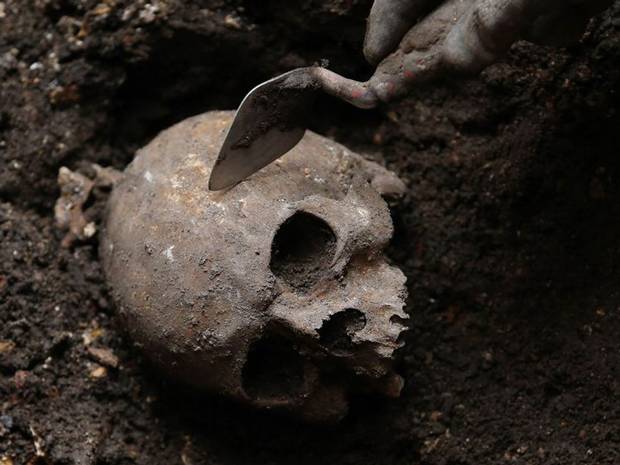The Islamic State captured Mosul, Iraq’s second-largest city, in July, and within the month, reports surged that the jihadist terror group had either occupied or destroyed every Christian institution in the city. Not just the Christian legacy is threatened by their presence, however– thousands of years of civilization may be destroyed under the group’s reign of terror.
The Associated Press reports the Islamic State has taken to destroying key archaeological sites in Iraq and Syria– much of which includes the ancient land of Mesopotamia– and subsidizing their income with black market sales of ancient artifacts. In addition to Mosul, the Islamic State controls four ancient cities — Nineveh, Kalhu, Dur Sharrukin and Ashur– which gives them nearly unbridled access to a treasure trove of statues, tiles, and other highly-coveted items by collectors. Nineveh alone contains 1,800 of Iraq’s 12,000 registered archaeological sites.
Qais Hussein Rashid, head of the Iraqi state-run Museums Department, tells the Associated Press that increased awareness of their black market trading is necessary to combat the problem. “They are cutting these reliefs [of Assyrian King Ashurnasirpal II, in the city of Kalhu] into small parts and selling them,” Rasheed continued. “They don’t need to excavate. They just need a chain saw to cut the king’s head or legs if they want.”
Al Monitor notes that it is believed the Islamic State is making millions off the ancient artifact trade. Islamic State terrorists have been encouraging archaeological digs, they report, to generate more revenues to buy weapons. According to the newspaper, the jihadists “oversee the excavation sites and exact a 20% percent ‘plunder’ tax on the traffickers,” and adds an estimate from The Guardian that the Islamic State made $36 million in sales of antiquities from the al-Nabuk area alone.
The Islamic States subsidizes much of its terrorism with sales of plundered oil, though many note that the group’s lack of engineers will cause the amount of oil extracted from wells in Syria and Iraq to diminish over time. The artifacts trade, in contrast, is almost limitless in a land so rich with ancient objects, allowing the Islamic State to continue waging war on civilization for far longer than they could afford without said trade. At best, the black market for such artifacts guarantees that some will survive the destruction that places and objects of non-Islamic religious significance have faced in areas like Mosul. Items that are not or cannot be sold, as well as buildings important to other religious, are seen as heretic by the terrorists and typically marked for destruction. The Islamic State has also attempted to destroy Muslim holy sites that are affiliated with Shia worship.

COMMENTS
Please let us know if you're having issues with commenting.